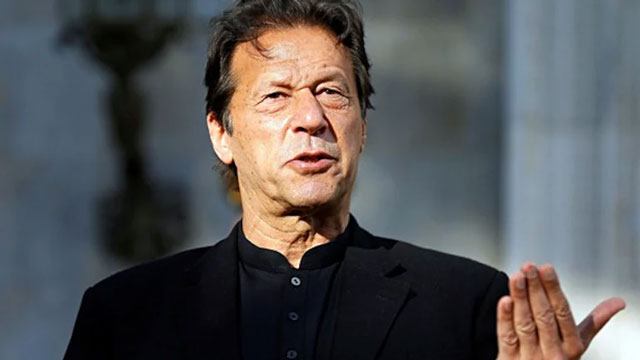Daijiworld Media Network - Islamabad
Islamabad, Nov 28: In a fresh wave of concern emerging from Pakistan, Noreen Niazi, sister of incarcerated former Prime Minister Imran Khan, has voiced serious anguish over the prolonged denial of family access and the increasing uncertainty surrounding his condition inside Rawalpindi’s Adiala Jail.
Speaking to ANI, Niazi accused authorities of deliberately withholding information and blocking all attempts by family members and party leaders to meet the former premier.

“We don't know anything. They are not telling us anything, nor are they letting anybody meet him… We haven't been allowed to meet him for the last four weeks,” she said, adding that alarming rumours about Khan’s death had even circulated in India amid the communication blackout.
Niazi strongly criticised the Pakistani establishment, alleging that police and security forces have been given a “free hand” to suppress supporters of Imran Khan. She condemned the rising instances of brutality, stating that officers were beating children, women, and the elderly without fear of consequences.
“This has never happened in Pakistan before. These people have been allowed to beat up anyone—women, children, elderly—without facing any punishment. The world is watching what is happening,” she remarked.
The concerns intensified after Khyber Pakhtunkhwa Chief Minister Sohail Afridi, accompanied by PTI lawmakers and supporters, arrived at Adiala Jail to protest over Khan’s deteriorating health and lack of access. The prison authorities, however, dismissed rumours of Khan’s death and asserted that he remained in good health.
Recounting the last time she saw her brother, Niazi said Khan had earlier been kept in solitary confinement for nearly three weeks—far beyond the four-day limit prescribed in the jail manual—and had suffered without electricity during peak summer. She believes the same harsh conditions have been imposed again.
“He is alone, in isolation… electricity switched off, no books allowed. No one knows what’s happening inside. This is the height of oppression,” she said.
Niazi warned that the growing suppression could trigger a public outburst.
“I worry for my brother, but I also worry for the poor and innocent people in jail. There will soon be a spark among the people—they have pushed us too far,” she added.
The situation continues to raise questions about human rights, political vendetta, and the transparency of Pakistan’s prison system, as uncertainty over Imran Khan’s wellbeing deepens.